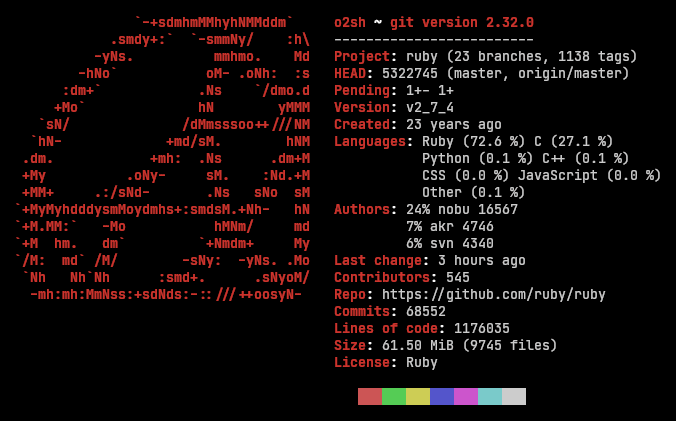In the realm of web development, server-side scripting languages play a pivotal role in creating dynamic and interactive online experiences. These languages power the back-end of websites and applications, processing data, managing databases, and generating content for users. Let’s dive into the top five popular server-side scripting languages.
What is server-side scripting?
Server-side scripting refers to the practice of running scripts or programs on a web server to process and generate dynamic content that is then sent to the client’s web browser. In the context of web development, the client refers to the user’s browser, and the server is the computer that hosts the website or web application.
Read more: Server Side Scripting Languages: An A-Z Guide
Benefits of server-side scripting languages

Server-side scripting languages offer a range of benefits for web development and dynamic content generation. Here are some key advantages:
- Dynamic Content Generation: Server-side scripting allows websites and web applications to generate dynamic content based on user interactions, data from databases, and other external sources. This enables personalized and interactive user experiences.
- Data Interaction: Server-side scripts can easily connect to databases, process data, and perform CRUD (Create, Read, Update, Delete) operations. This is essential for building data-driven applications that store and retrieve information.
- Security: Sensitive operations like database access, user authentication, and handling secure transactions can be managed on the server side. This reduces the risk of exposing critical code and data to the client’s browser.
- Code Reusability: Logic that needs to be applied consistently across multiple pages or sections of a website can be encapsulated in server-side scripts. This promotes code reusability, maintainability, and reduces redundancy.
- Consistency: Server-side scripting ensures that the same logic and data processing are applied to all users regardless of their browser or device. This consistency helps in delivering a uniform user experience.
- Resource Management: Certain tasks, such as compression, caching, and resource optimization, can be efficiently performed on the server side, reducing the load on the client’s browser and improving overall performance.
- SEO Friendliness: Server-side scripting allows you to generate SEO-friendly HTML content that search engines can easily crawl and index. This is particularly important for improving a website’s search engine ranking.
- Scalability: Server-side scripts can be designed to handle large user loads and scale up as needed. This is crucial for applications that experience varying levels of traffic.
- Security: Server-side scripting helps in securing sensitive code and data that should not be exposed to the client side. This prevents unauthorized access and tampering.
Top 5 popular server-side scripting languages
PHP

PHP, or Hypertext Preprocessor, stands as a versatile and widely adopted server-side scripting language tailored for dynamic web development. Recognized for its accessibility and robust capabilities, PHP empowers developers to create interactive and personalized web experiences.
With a vibrant community, abundant resources, and seamless integration with databases, PHP has secured its place as a cornerstone in web development, enabling the construction of dynamic and data-driven applications. Whether crafting a small project or contributing to large-scale systems, PHP offers a foundation for translating ideas into functional, engaging, and responsive online solutions.
Advantages
PHP is indeed a popular server-side scripting language that has been widely used for web development. Here are some reasons for its popularity:
- Ease of Use: PHP was designed with web development in mind, making it relatively easy to learn and use for creating dynamic web pages. Its syntax is similar to other C-style languages, which many developers find familiar.
- Large Community: PHP has a massive and active community of developers, which means there are abundant resources, documentation, forums, and libraries available for solving problems and learning.
- Open Source: PHP is open-source, meaning it’s freely available and can be used without any licensing costs. This has contributed to its widespread adoption, especially for smaller projects and startups.
- Server Compatibility: PHP is supported by a majority of web servers (like Apache, Nginx, and Microsoft IIS) and can run on various platforms, including Linux, Windows, and macOS.
- Integration with Databases: PHP has excellent support for connecting to databases like MySQL, PostgreSQL, and others, making it suitable for building data-driven applications.
- Frameworks: There are several popular PHP frameworks, such as Laravel, Symfony, and CodeIgniter, that provide pre-built structures and tools for building web applications, which can speed up development.
- Performance: While PHP’s performance has improved over the years, it might not be the fastest scripting language. However, with proper optimization and caching mechanisms, PHP applications can still perform well.
Python

Renowned for its clean syntax and readable structure, Python empowers developers to create solutions across a diverse spectrum of applications. From web development and data analysis to artificial intelligence and automation, Python’s extensive library ecosystem and user-friendly design facilitate efficient coding. With its widespread adoption and supportive community, Python serves as an ideal choice for both beginners and experienced programmers seeking a language that excels in both expressiveness and practicality.
Advantages
Python, once mainly recognized for its versatility in desktop applications and data analysis, has expanded its realm to become a popular choice for server-side scripting in web development. Its seamless transition to the server side is attributed to several factors:
- Web Frameworks: Python boasts a range of powerful web frameworks such as Django, Flask, and Pyramid. These frameworks facilitate the rapid development of web applications, handling crucial tasks like routing, templating, and database interaction.
- Readable Syntax: Python’s clean and human-readable syntax simplifies the coding process, enhancing developer productivity. This readability also fosters collaboration among teams working on server-side projects.
- Diverse Libraries: Python’s extensive library ecosystem encompasses modules for database connectivity, API integration, security, and more. This wealth of resources accelerates development and augments server-side functionality.
- Scalability: Python’s versatility extends to scaling applications. While it might not be the fastest language, its flexibility allows developers to optimize performance through various techniques, including parallelism and asynchronous programming.
- Data Manipulation: For applications that require data manipulation, Python’s libraries like NumPy, Pandas, and Matplotlib empower developers to process, analyze, and visualize data directly on the server side.
- Machine Learning and AI: Python’s prominence in machine learning and artificial intelligence has led to the integration of AI-driven functionalities within server-side applications, expanding their capabilities.
- Community and Support: Python’s active community ensures continuous development and enhancement of tools and frameworks. This support network addresses issues promptly and offers a plethora of resources for newcomers.
Ruby

Renowned for its focus on simplicity and readability, Ruby empowers programmers to create clean and concise solutions across a wide array of applications. From web applications powered by the Ruby on Rails framework to automation scripts, Ruby’s intuitive syntax and robust ecosystem make it a versatile choice for developers seeking an enjoyable and productive coding experience.
Advantages
Ruby has garnered recognition as a popular and influential server-side scripting language, particularly due to its association with the Ruby on Rails framework. Here are some key factors contributing to its popularity in this role:
- Ruby on Rails (Rails) Framework: Ruby gained immense popularity through the Ruby on Rails framework. Rails is designed for efficient web application development, offering a structured environment that streamlines tasks like routing, database management, and user authentication.
- Productivity and Convention Over Configuration: Rails follows the principle of convention over configuration (CoC), reducing the need for developers to make redundant decisions. This leads to higher productivity and quicker development cycles.
- Active Record: Rails incorporates the Active Record ORM (Object-Relational Mapping), simplifying database interactions and reducing the need for writing complex SQL queries.
- Community and Libraries: The Ruby community is active and collaborative, providing a wealth of open-source gems (libraries) that expedite development. These gems cover a range of functionalities, from authentication to API integration.
- Readability and Expressiveness: Ruby’s syntax is designed for readability, emphasizing code that’s easy to understand and maintain. This makes it particularly appealing for collaborative projects and long-term maintenance.
- Flexible and Dynamic: Ruby’s dynamic nature allows for elegant code manipulation, making it versatile for tasks beyond web development, such as scripting, automation, and data processing.
- Convention for Testing (TDD/BDD): Ruby’s ecosystem strongly supports testing methodologies like Test-Driven Development (TDD) and Behavior-Driven Development (BDD), ensuring robust and reliable applications.
Node.js

Built on the V8 JavaScript engine, Node.js enables developers to use JavaScript not just on the client side, but also for server applications. With its focus on asynchronous programming and seamless communication, Node.js empowers developers to create high-performance, data-intensive applications, making it a dynamic choice for projects requiring rapid responsiveness and efficient handling of concurrent connections.
Advantages
Node.js has emerged as a popular and influential server-side scripting environment, primarily due to its unique architecture and capabilities. Here are some key reasons for Node.js’ popularity in this role:
- JavaScript Everywhere: Node.js allows developers to use JavaScript not only on the client side but also on the server side. This unified language approach simplifies development by enabling developers to work in the same language across the entire application stack.
- Event-Driven and Non-Blocking: Node.js utilizes an event-driven, non-blocking I/O model. This enables it to efficiently handle multiple concurrent connections without getting blocked by I/O operations, making it ideal for real-time applications and handling many users simultaneously.
- Asynchronous Programming: Node.js excels at asynchronous programming, enabling developers to handle many requests efficiently without the need for multiple threads. This leads to high scalability and responsiveness.
- Fast Execution: Node.js is built on the V8 JavaScript engine, which is known for its high-performance execution. This results in fast response times, making Node.js suitable for applications requiring quick processing.
- Rich Package Ecosystem: Node.js has a vast package ecosystem through its package manager, npm. Developers can easily find and integrate various libraries and modules to speed up development and add functionality.
- Real-time Applications: Node.js is well-suited for building real-time applications like chat applications, online gaming, collaborative tools, and live streaming due to its event-driven nature and efficient handling of many concurrent connections.
- Microservices Architecture: Node.js works well in microservices architecture due to its lightweight and modular design. Developers can create small, focused services that communicate efficiently.
Java

Recognized for its platform independence and extensive libraries, Java empowers developers to create applications that run seamlessly across diverse environments. Java’s object-oriented nature fosters modular and maintainable code, while its focus on security and stability makes it a preferred choice for enterprise-level solutions.
Advantages
Java is a widely used and influential programming language that has gained significant popularity as a server-side scripting language. While it’s not traditionally referred to as a scripting language, its application in server-side contexts is notable for several reasons:
- Robustness and Stability: Java is known for its strong typing, compile-time checking, and comprehensive exception handling. These qualities contribute to the development of robust and stable server-side applications.
- Platform Independence: The “Write Once, Run Anywhere” philosophy of Java allows applications to be developed on one platform and run on various operating systems without modification, making it highly portable.
- Enterprise-Level Applications: Java’s maturity and scalability make it a preferred choice for developing large-scale enterprise applications. Its extensive libraries and frameworks cater to complex requirements.
- Java EE (Enterprise Edition): Java offers the Java EE platform, which provides a set of standardized APIs, protocols, and components for building enterprise applications, including servlets, JSP (JavaServer Pages), and EJBs (Enterprise JavaBeans).
- Spring Framework: The Spring Framework is a powerful and popular Java framework for building robust and scalable applications. It simplifies the development process and promotes best practices.
- Performance: While Java might not be as fast as some lower-level languages, its performance is optimized through Just-In-Time (JIT) compilation, which dynamically translates bytecode into native machine code.
- Security: Java’s security features, including its robust memory management and security architecture, make it suitable for applications where data protection and secure communication are essential.
CMC Global: Your Enterprise Software Development Partner
CMC Global is here to assist you if you are ready to collaborate with an enterprise software development organization to generate better software projects.
CMC Global is ready to work with you to achieve your software development objectives, whether you’re updating a legacy application or through a complete digital transformation.
We integrate extensive business expertise with the most modern advances in software development, such as cloud computing, data analytics, and artificial intelligence (AI).
Are you ready to modernize your company’s software development strategy? Contact us right away.




